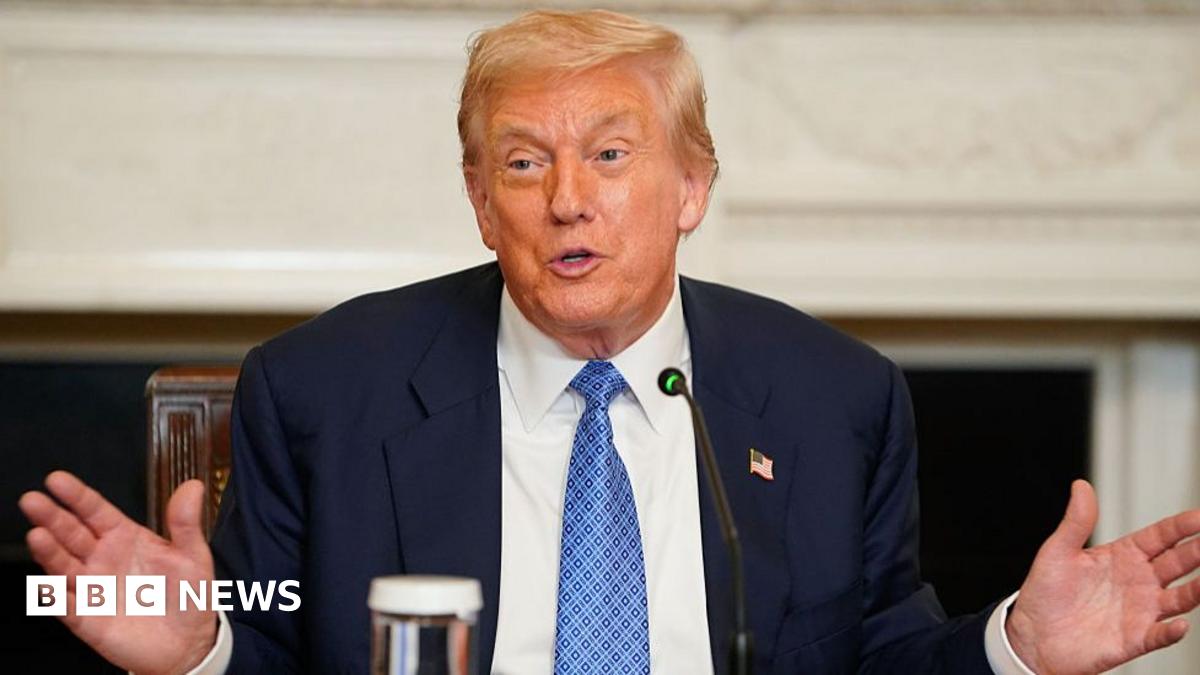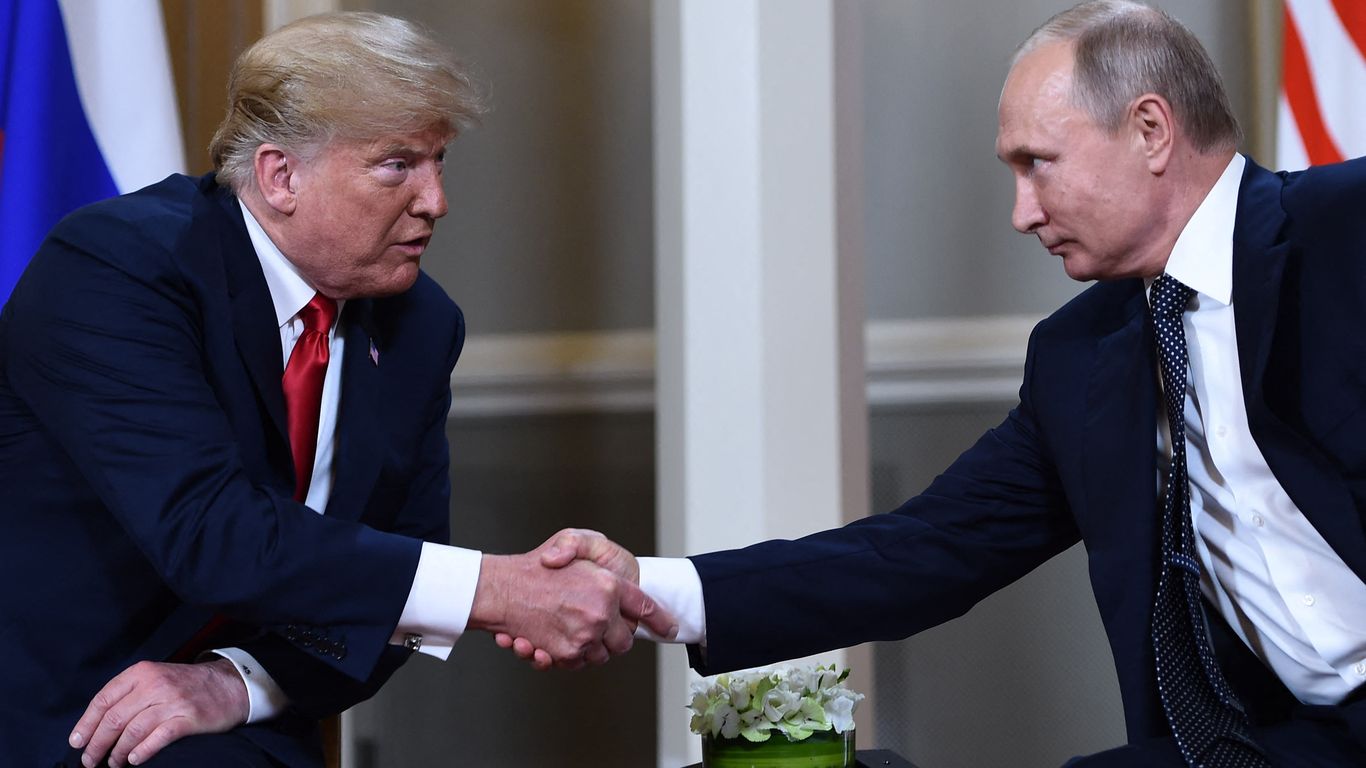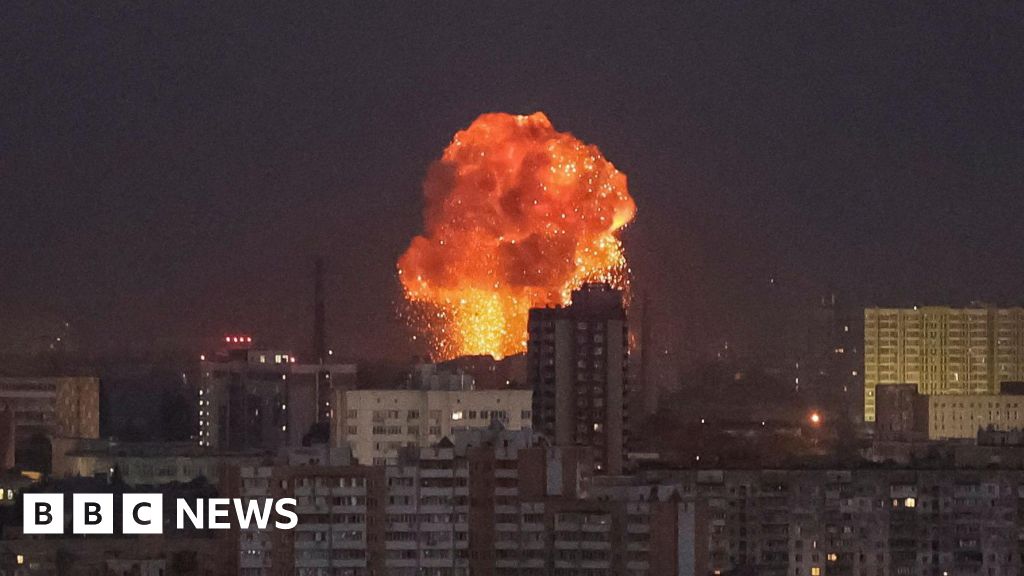Putin Warns Foreign Troops in Ukraine

Introduction
Russian President Vladimir Putin has issued a stern warning to foreign troops in Ukraine, stating that they would be considered "legitimate targets" for Russia. This comes as tensions continue to rise in the region, with clashes between Ukrainian and Russian forces escalating. The Financial Times reported that Putin has insisted any peace talks with Ukrainian counterpart Volodymyr Zelenskyy must be held in Moscow, a move that has been met with resistance from the Ukrainian government.
Key Details
The conflict in Ukraine has been ongoing since 2014, when Russia annexed the Crimean peninsula and supported separatists in eastern Ukraine. In recent months, there has been an increase in fighting in the Donbass region, with both sides accusing the other of violating a ceasefire agreement. The presence of foreign troops, specifically from NATO countries, has been a point of contention for Russia, who sees it as an encroachment on their borders. Putin's warning is seen as a direct response to the recent announcement of additional US troops being deployed to the region.
Impact
The statement from Putin has raised concerns about the potential for further escalation in the conflict. It also highlights the complicated relationship between Russia and Ukraine, with tensions between the two countries reaching a breaking point. This warning also puts pressure on Zelenskyy to agree to hold peace talks in Moscow, which could
About the People Mentioned
Vladimir Putin
Vladimir Putin is the current President of Russia, a position he has held for multiple terms since 2000, with a brief interlude as Prime Minister from 2008 to 2012[1][3]. Born in Leningrad (now Saint Petersburg) in 1952, Putin began his career in the Soviet Union’s security services, joining the KGB in 1975 and rising to the rank of Lieutenant Colonel by the time he left in 1991, following postings in East Germany and Leningrad[4]. After the Soviet Union’s collapse, he transitioned into politics, serving as an adviser to Saint Petersburg Mayor Anatoly Sobchak and later moving to Moscow, where he held various administrative roles under President Boris Yeltsin[6]. Putin was appointed Prime Minister in August 1999 and became acting President when Yeltsin unexpectedly resigned that December[3][6]. He won his first presidential election in March 2000, promising to stabilize Russia’s economy and political system after the tumultuous 1990s[3][7]. During his initial terms, he centralized power, reasserted federal control over Russia’s regions, and curtailed the influence of the country’s oligarchs through legal and economic measures[7]. Putin was re-elected in 2004 but, due to constitutional term limits, stepped aside in 2008, becoming Prime Minister under his successor Dmitry Medvedev, while retaining significant influence[3]. Constitutional amendments later extended presidential terms, and Putin returned to the presidency in 2012[1]. Putin’s time in office has been marked by assertive foreign policy, including military interventions in Syria in support of President Bashar al-Assad and the 2014 annexation of Crimea, which led to international sanctions[1]. Domestically, his tenure has seen increased state control over media, the suppression of political opposition, and constitutional changes consolidating executive authority[1]. In 2022, Russia’s full-scale invasion of Ukraine triggered a major international crisis, further isolating Russia from the West and prompting widespread condemnation[1]. As of 2025, Putin remains a dominant figure in Russian politics, having secured another term in office through constitutional changes that allow him to potentially remain president until 2036[1]. His leadership continues to shape Russia’s domestic trajectory and its role in global affairs, amid ongoing conflict in Ukraine and strained relations with NATO and Western countries[1].
Volodymyr Zelenskyy
Volodymyr Oleksandrovych Zelenskyy, born on January 25, 1978, in Kryvyi Rih, Ukraine, is a Ukrainian politician and former entertainer. He is the sixth president of Ukraine, having taken office in 2019. Before entering politics, Zelenskyy was a well-known comedian, actor, screenwriter, film producer, and director. He graduated with a law degree from Kyiv National Economic University in 2000 but never practiced law. Instead, he co-founded the production company Kvartal 95, which produced films, cartoons, and TV shows, including the popular series "Servant of the People," where he played a fictional Ukrainian president. Zelenskyy's political career began when he announced his candidacy for the 2019 presidential election on New Year's Eve in 2018. He positioned himself as an anti-establishment and anti-corruption figure, which resonated with the public. He won the election with a landslide victory of 73.23% in the second round, defeating incumbent President Petro Poroshenko. Upon taking office, Zelenskyy dissolved the Verkhovna Rada and called for snap elections, which resulted in his party, Servant of the People, gaining an absolute majority in parliament. As president, Zelenskyy has faced significant challenges, including the ongoing conflict with Russia. His leadership during the full-scale Russian invasion of Ukraine, which began in February 2022, has made him a global figure of resistance. He has been recognized for his efforts, including being named Time Magazine's Person of the Year in 2022. Zelenskyy is married to Olena Zelenska and has two children. His presidency has been marked by a strong focus on national unity and international diplomacy to secure support for Ukraine during the ongoing conflict.
About the Organizations Mentioned
Financial Times
## Overview The **Financial Times (FT)** is a globally renowned daily newspaper focused on international business, economic news, and financial markets, headquartered in London[2]. It is recognized for its in-depth analysis, editorial independence, and distinctive salmon-pink paper—a hallmark since 1893, originally chosen for cost-saving reasons but now a symbol of prestige[1][4]. The FT’s motto, “Without fear and without favour,” underscores its commitment to unbiased reporting[4]. ## What the Organization Does The FT delivers news across print and digital platforms, with editions tailored for the UK, Europe, the US, Asia, and the Middle East[1]. It features daily coverage of markets, companies, politics, and technology, along with special reports on industries, countries, and emerging trends[2]. Its weekend edition, **FT Weekend**, offers broader cultural and lifestyle content, while the FT Group provides subscription services for organizations seeking comprehensive global insights[2]. As of 2023, the FT boasts 1.3 million subscribers, with the vast majority accessing content digitally—a testament to its successful adaptation to the digital age[2]. ## History and Key Achievements Founded in 1888 by James Sheridan and his brother, the FT began as a four-page paper for London’s financial community, initially named the *London Financial Guide* before adopting its current title[1][3][4]. It quickly distinguished itself from competitors, notably the *Financial News*, by printing on pink paper—a tradition that endures[1][4]. A pivotal moment came in 1945 when the FT merged with its rival, the *Financial News*, consolidating its position as a leading financial publication[1][2][4]. Owned by Pearson from 1957, the FT expanded internationally, launching its first non-UK edition in Frankfurt in 1979 and entering the US market in 1985[1]. In 2015, Japanese media
NATO
The **North Atlantic Treaty Organization (NATO)** is a transatlantic military alliance founded in 1949 to secure peace in Europe and protect democratic nations from Soviet aggression. It began with 12 founding members and has expanded to include 32 countries across North America and Europe as of 2025, including recent additions Finland (2023) and Sweden (2024)[1][3]. NATO's core principle is collective defense, meaning an attack against one ally is considered an attack against all, enshrined in Article 5 of its founding treaty[3]. Originally established as a Cold War bulwark, NATO has evolved beyond its initial Euro-Atlantic focus, engaging in missions worldwide, such as in Afghanistan and Libya[1]. The alliance remains central to U.S.-Europe military cooperation and has adapted to new security challenges, particularly Russia’s 2022 invasion of Ukraine, which has significantly reshaped NATO’s priorities. This aggression has spurred increased defense spending, stronger collective deterrence efforts, and accelerated Ukraine’s path toward potential membership[1][4]. In June 2025, NATO held its first summit in the Netherlands, where leaders agreed on raising defense spending targets to 5% of GDP—split between 3.5% for core defense and 1.5% for related security costs, including support for Ukraine. This marked a historic commitment to bolster the alliance’s military capabilities amid evolving global threats. The summit also emphasized eliminating defense trade barriers and reaffirmed the ironclad commitment to collective defense[2][5]. NATO’s ongoing significance lies in its role as a strategic security platform fostering cooperation among member states, responding to geopolitical instability, and adapting to emerging threats like terrorism and cyber warfare[4]. Its "open door" policy continues to invite eligible European democracies to join, reinforcing its mission to safeguard peace, democracy, and shared technological and defense innovations across allied nations[1][4].














